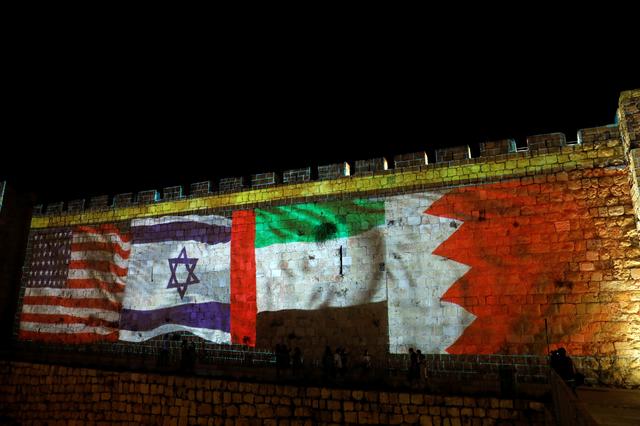
(Reuters) – Israel is due to send delegates to Bahrain on Sunday to formalise nascent relations and broaden Gulf cooperation that Washington has promoted as an anti-Iran bulwark and potential economic bonanza.
Bahrain followed the United Arab Emirates in agreeing last month to normalise ties with Israel, stunning Palestinians who had demanded statehood before any such regional rapprochement.
The breakthrough, overseen by U.S. President Donald Trump, is a foreign policy flourish ahead of his reelection bid next month. For the U.S. allies, it is a chance to close ranks more overtly on Iran.
Sunday’s delegation, led by Israeli National Security Adviser Meir Ben-Shabbat, will be accompanied by U.S. Treasury Secretary Steve Mnuchin, whose office said the mission seeks “expanded economic cooperation” among Israel, Bahrain and UAE.
An official involved in the visit said Israel and Bahrain would sign a communique upgrading their relationship: from the declaration of intent delivered at a White House ceremony on Sept. 15 to a formal establishment of ties.
The delegates travel to Manama on El Al flight 973, a nod to Bahrain’s telephone code. The Israeli airliner will overfly Saudi Arabia, an accommodation by the Gulf powerhouse that has so far resisted U.S. appeals to normalise ties with Israel.
Mnuchin and another senior Trump aide, Middle East envoy Avi Berkowitz, will continue on Monday to UAE, whose accord with Israel has uncorked bilateral commerce. On Tuesday, the U.S. dignitaries will accompany the UAE’s first delegation to Israel.
Though less oil-rich than UAE, Bahrain – host to the U.S. Navy’s Fifth Fleet – has geo-strategic significance.
Ruled by a Sunni Muslim monarchy, it was the only Gulf Arab state to experience a sizeable pro-democracy uprising, led by the Shi’ite majority population, in the 2011 “Arab Spring”.
The Israel deal drew anger among Bahrainis at home and abroad. Manama has said the deal protects its interests from Iran. [nL8N2GE0RA]
A Sept. 13 report by Israel’s Intelligence Ministry saw potential for defence cooperation with Bahrain, describing it as threatened by “Shiite political sedition, directed by Iran and its proxies”.
Israel could also help Bahrain with renewable energy, food security and banking and finance technologies, it said.






